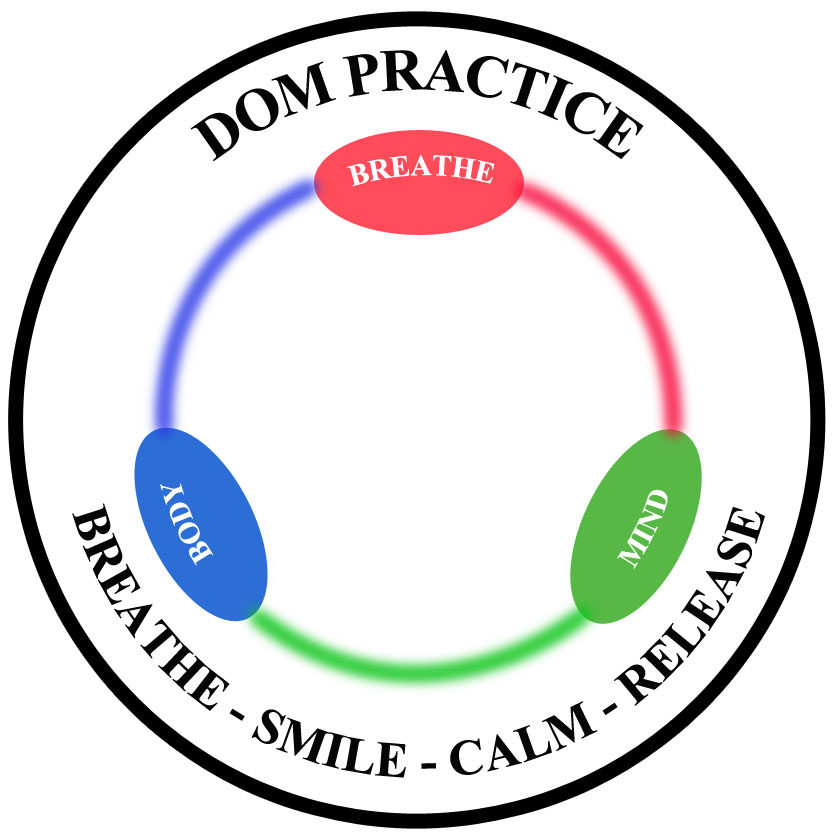The Story of Deva Ankura
While on a visit to the Tavatimsa deva realm, the Buddha uttered Verses (356) to (359) of this book, with reference to a deva named Ankura.
The Buddha visited the Tavatimsa deva realm to expound the Abhidhamma to Deva Santusita, who had been his mother. During that time, there was a deva named Indaka in Tavatimsa. Indaka, in his last existence as a man, had offered a little alms-food to Thera Anuruddha. As this good deed was made to a thera within the period of the Buddha's Teaching he was amply rewarded for it. Thus, on his death he was reborn in the Tavatimsa realm and was lavishly bestowed with the luxuries of the deva world. At that time, there was also another deva by the name of Ankura in Tavatimsa who had given much in charity; in fact, many times more than what Indaka had given. But his charity was made outside the period of the Teaching of any of the Buddhas. So, in spite of his lavish and grand charities, he was enjoying the benefits of the life of a deva on a much smaller scale than Indaka, who had offered very little. As the Buddha was then at Tavatimsa, Ankura asked him the reason for the discrepancy in gaining the benefits. To him the Buddha answered, "O deva! When giving charities and donations you should choose whom you give, for acts of charities are just like seeds. Seeds put into fertile soil will grow into strong, vigorous plants or trees and will bear much fruit; but you had sown your seed in poor soil, so you reap poorly."
Then the Buddha spoke in verse as follows:
|
Kết Một Tràng Hoa Thiền Sư Thích Nhất Hạnh |
Tích Truyện Pháp Cú Thiền viện Viên Chiếu |
Tâm Minh Ngô Tằng Giao Chuyển Dịch Thơ |
Translated by Acharya Buddharakkhita |
| Hết tham dục thì không còn sợ hãi, lúc ấy ta mới được thảnh thơi an lạc. Dục hết thì kết sử cũng hết, do đó hành giả ra khỏi được vực sâu. |
Cỏ làm hại ruộng vườn, Tham làm hại người đời. Bố thí người ly tham Do vậy được quả lớn. |
Cỏ hoang làm hại ruộng vườn Tham lam gây hại nhiều hơn cho người, Tham lam ai đã lìa rồi Cúng dường vị ấy chẳng nơi nào bằng Hưởng về phước báu vô vàn. |
Weeds are the bane of fields; lust is the bane of mankind. Therefore, what is offered to those free of lust yields abundant fruit. |
| Nầy ái dục ta ơi, ta biết gốc gác của mi rồi! Dục ý là từ ước muốn và nhận thức sai lầm mà phát khởi. Nay ta không còn ước muốn và nhận thức sai lầm về mi thì làm sao mi còn có thể phát sinh. |
Cỏ làm hại ruộng vườn, Sân làm hại người đời. Bố thí người ly Sân Do vậy được quả lớn. |
Cỏ hoang làm hại ruộng vườn Lòng sân gây hại nhiều hơn cho người, Ai lìa sân hận được rồi Cúng dường vị ấy chẳng nơi nào bằng Hưởng về phước báu vô vàn. |
Weeds are the bane of fields; hatred is the bane of mankind. Therefore, what is offered to those free of hatred yields abundant fruit. |
| Đốn cây ái dục mà không đốn tận gốc thì cây ái dục sẽ mọc trở lại. Đốn cây ái dục mà tận gốc thì vị xuất sĩ đạt tới Niết Bàn. |
Cỏ làm hại ruộng vườn, Si làm hại người đời. Bố thí người ly Si Do vậy được quả lớn. |
Cỏ hoang làm hại ruộng vườn Si mê gây hại nhiều hơn cho người, Si mê ai đã lìa rồi Cúng dường vị ấy chẳng nơi nào bằng Hưởng về phước báu vô vàn. |
Weeds are the bane of fields; delusion is the bane of mankind. Therefore, what is offered to those free of delusion yields abundant fruit. |
| Nếu không chịu chặt cây ái dục thì cành lá ái dục ít nhiều sẽ còn phát sinh. Tâm còn vướng vào ái dục thì người vẫn còn như một con bê, luôn luôn cần đến vú mẹ. |
Cỏ làm hại ruộng vườn, Dục làm hại người đời. Bố thí người ly Dục Do vậy được quả lớn. |
Cỏ hoang làm hại ruộng vườn Ái dục gây hại nhiều hơn cho người, Ai lìa ái dục được rồi Cúng dường vị ấy chẳng nơi nào bằng Hưởng về phước báu vô vàn. |
Weeds are the bane of fields; desire is the bane of mankind. Therefore, what is offered to those free of desire yields abundant fruit. |
